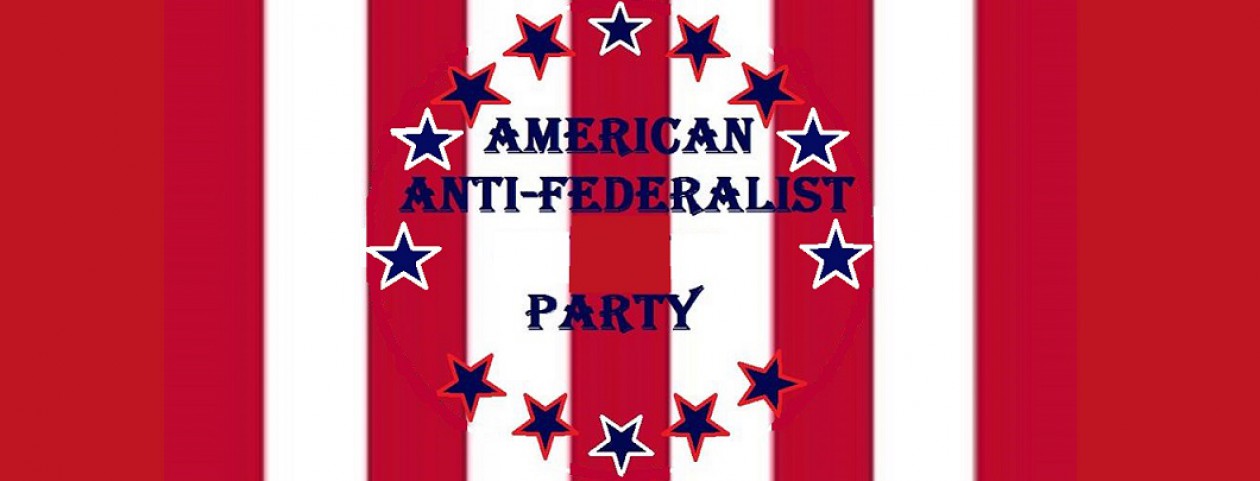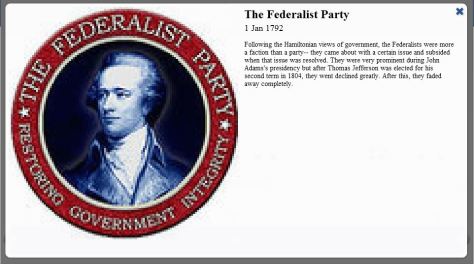History of Political Parties in America
It is fairly well known that George Washington Our First President had Presided over the Philadelphia Convention of 1787 Convention only after much pressing upon him by the Delegates and The Continental Congress, he did not even want to attend The Grand Convention. It was James Madison and General Henry Knox who finally convinced him to attend. Once the Convention began he was unanimously elected President of the Proceedings.
Federalists, this was the first United States political party. Northern businessmen, bankers, and merchants supported the Federalists. It was those who desired the ratification of the Constitution as it was, without the Bill of Rights. Imagine, where would many of us be today had we no Bill of Rights? You can thank an Anti-Federalist Founding Father and a Lady Founder few know about for that! James Madison was notably the leader or the “Henchman in Charge” as it was an Act of Treason they in fact had committed having committed themselves to the Populace to revise the already in place and agreed upon Articles of Confederation. Madison argued in the Federalist Papers that the Constitution did not authorize the national government [Federal Government] to take away rights, so there was no need to include a Bill of Rights. Imagine how that would have worked out for us! Surely they felt they were doing them [the populace] a service in limiting the Powers of the Government but they neglected to enumerate the Rights of the People and declare where the Peoples Power lay, except in the Power to elect. At the time of the Federal Convention of 1787 Thomas Jefferson was in France, had he been present it would have certainly turned out differently. The Founding Fathers knew of some wickedness of the World but they could never have imagined the expanse of it in the 21st Century and surely never pictured the morbidity of morality or that virtue of truth would be sold out for pennies on the dollar and the people paying for it out of lack of virtue and knowledge of truths. Samuel Adams said, “ If virtue and knowledge are diffused among the people, they will never be enslaved. This will be their great security.”
Or perhaps they placed too much faith in “We the People” having the gumption to do as we were instructed in the most solid of our Cornerstone Documents, solid because it can NOT be Altered or Amended, The Declaration of Independence clearly states: “That to secure these rights, governments are instituted among men, deriving their just powers from the consent of the governed. That whenever any form of government becomes destructive to these ends, it is the right of the people to alter or to abolish it, and to institute new government, laying its foundation on such principles and organizing its powers in such form, as to them shall seem most likely to effect their safety and happiness.” They went on to say after giving warning of prudence, ” But when a long train of abuses and usurpations, pursuing invariably the same object evinces a design to reduce them under absolute despotism, it is their right, it is their duty, to throw off such government, and to provide new guards for their future security.” This was of course relevant to the documentation of the Crowns abuses and the timely action they undertook at that time but, it is pertinent to recall that they took their ground that day and intended to stand it through the generations. Which brings us to the Peoples present day duty to “throw off such government, and to provide new guards for their future security, to enact the right of the people to alter or to abolish it, and to institute new government.”
Some activists joined the Anti-Administration Party that James Madison and Thomas Jefferson were forming about 1790-91 to oppose policies of Federalist Treasury Secretary Alexander Hamilton they opposed;
it soon became the Democratic-Republican party. In 1796, anti-Federalists gathered around Jefferson. Members of Jefferson’s group called themselves Democratic–Republicans. Northern businessmen, bankers, and merchants supported the Federalists.
http://www.timetoast.com/timelines/political-parties-throughout-american-history-1792-2012




















You must be logged in to post a comment.